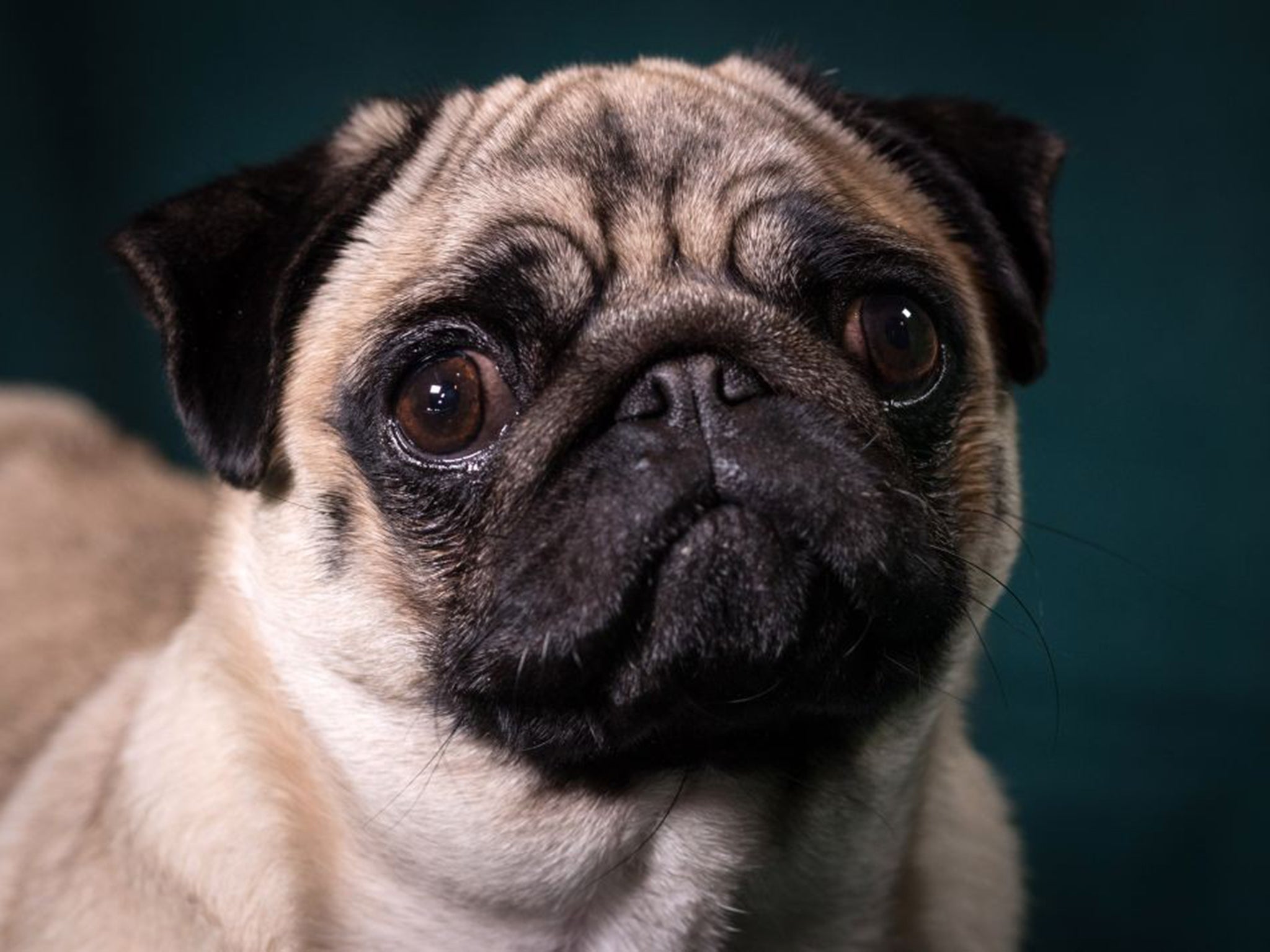The Independent's journalism is supported by our readers. When you purchase through links on our site, we may earn commission.
Pedigree dogs' lives are full of pain – so why does Crufts glorify their suffering?
By condemning and staying away from Crufts and other dog shows, we can send a message that dogs shouldn't suffer for human vanity


Your support helps us to tell the story
From reproductive rights to climate change to Big Tech, The Independent is on the ground when the story is developing. Whether it's investigating the financials of Elon Musk's pro-Trump PAC or producing our latest documentary, 'The A Word', which shines a light on the American women fighting for reproductive rights, we know how important it is to parse out the facts from the messaging.
At such a critical moment in US history, we need reporters on the ground. Your donation allows us to keep sending journalists to speak to both sides of the story.
The Independent is trusted by Americans across the entire political spectrum. And unlike many other quality news outlets, we choose not to lock Americans out of our reporting and analysis with paywalls. We believe quality journalism should be available to everyone, paid for by those who can afford it.
Your support makes all the difference.Selective breeding can have disastrous health consequences, so why then, do we promote and even glorify it each year at the world's biggest canine "beauty" pageant, Crufts? The Kennel Club’s “breed standards” encourage breeders to treat dogs’ bodies as if they were modelling clay and manipulate them into abnormal shapes and sizes through genetic selection and inbreeding. Despite the painful and often life-threatening results, breeders – their hearts in their bank accounts – are only too happy to comply.
Last year, an American cocker spaniel was judged “Best in Show”. The breed is prone to crippling hip and elbow dysplasia, congestive heart failure and a host of eye issues, including retinal degeneration and glaucoma. The West Highland white terrier, the 2016 winner, commonly develops an enlarged jaw and suffers from disintegration of the hip joint and dislocated kneecaps.
That same year, a German shepherd whose back was so abnormally sloped that she walked with what appeared to be a painful, permanent limp – she could barely drag herself around the judge’s circuit – was crowned “Best of Breed”.
Crufts’ cruel whims know no bounds.
Dogs bred to have broad, flat faces struggle to fetch a ball or even breathe because their airways are unnaturally shortened. The vast majority of bulldog puppies – whose heads are too big to pass through the birth canal – must be delivered by caesarean section, as a natural birth would likely kill the mother. Cavalier King Charles spaniels, who are bred to have skulls that are flat on top, scream in agony as their brain tissue rubs against bone.
Dachshunds’ spines are so disproportionately long that many suffer through a lifetime of disc disease and other debilitating back problems. Great Danes, who are bred to have long necks and large heads, often have compressed neck vertebrae, resulting in a disorder known as wobbler syndrome that can make these gentle giants topple over.
Once a back is sloped enough, a skull flat enough or a spine long enough to curry a judge’s favour, breeders shamelessly force mothers to mate with uncles and daughters with grandfathers in order to ensure that the trait stays in the bloodline. Inbreeding is so rampant among the more than 10,000 pugs in the UK that all of them are now descended from just 50 dogs. Case in point: the grandfather of the pug who was named Crufts’ 2015 “Best of Breed” was also that dog’s uncle.
But playing God has dire consequences. Not only do many pedigree dogs die prematurely, inbreeding also increases the likelihood that recessive genes will be passed on to puppies – along with a host of serious congenital defects, including heart disease, epilepsy, hypothyroidism, cataracts, allergies and hip dysplasia, which can lead to lameness and arthritis.
There comes a point, surely, when we must recognise that this is all our own doing and take action to stop it. “Somehow there’s this misconception that dog breeds actually exist – like dachshunds are a natural thing in the world,” says Dr Louise Murray, vice president of the ASPCA Animal Hospital. “We think, there are frogs, and there are chickens, and there are dachshunds. But of course you don’t realise until later that they’re just human constructs.” Today, as one in four purebred dogs has a congenital health condition, this human obsession with pedigree is causing widespread suffering.
Crufts, though, is determined not to acknowledge its complicity. Instead, as people rush out to buy the latest “must-have” breed that they saw on television – and breeders meet the demand by churning out more puppies – it exacerbates the misery of these complex, loving beings.
By implying that purebred dogs are somehow better than mixed-breed dogs, the show and the industry it props up seal the fates of countless animals who are languishing in shelters. A healthy dog is euthanised every two hours in the UK, and many others spend their lives inside a pen rather than with a loving family because there aren’t enough good homes for them all.
By condemning and staying away from Crufts and other dog shows, we can send a message that dogs shouldn’t suffer for human vanity. If you’re considering bringing a canine companion into your life, please adopt one from a shelter and have him or her spayed or neutered.
Dogs don’t care if our skin is wrinkly or how long our noses are. They don’t care whether or not we bring home a ribbon. They love us for who we are, unconditionally.
Don’t they deserve the same in return?
Elisa Allen is director of Peta UK
Join our commenting forum
Join thought-provoking conversations, follow other Independent readers and see their replies
Comments